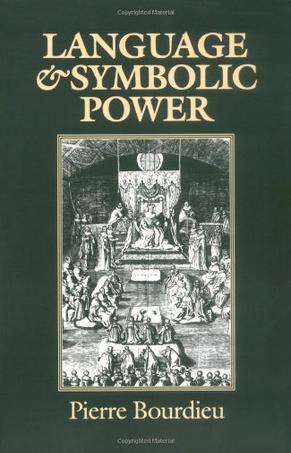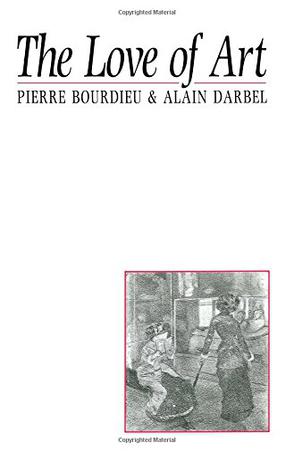-

Language and Symbolic Power
This volume brings together Bourdieu's highly original writings on language and on the relations among language, power, and politics. Bourdieu develops a forceful critique of traditional approaches to language, including the linguistic theories of Saussure and Chomsky and the theory of speech-acts elaborated by Austin and others. He argues that language should he viewed not only as a means of communication but also as a medium of power through which individuals pursue their own interests and display their practical competence. Drawing on the concepts that are part of his distinctive theoretical approach. Bourdieu maintains that linguistic utterances or expressions can be understood as the product of the relation between a linguistic market" and it "linguistic habitus." When individuals use language in particular ways, they deploy their accumulated linguistic resources and implicitly adapt their words to the demands of the social held or market that is their audience. Hence every linguistic interaction, however personal or insignificant it may seem, hears the traces of the social structure that it both expresses and helps to reproduce. Bourdieu's account sheds fresh light on the ways in which linguistic usage varies according to considerations such as class and gender. It also opens up a new approach to the ways in which language is used in the domain of politics. For politics is, among other things, the arena in which words are deeds and the symbolic character of power is at stake. This volume, by one of the leading social thinkers in the world today, represents a major contribution to the study of language and power. It will be of interest to students throughout the social sciences and humanities, especially in sociology, politics, anthropology, linguistics, and literature. -

Pierre Bourdieu: Key Concepts
-

Pierre Bourdieu
This short critical introduction to the sociology of Pierre Bourdieu is set forth clearly. Where Bourdieu's original writings are often densely argued and ambiguous, Richard Jenkins is direct, concise and to the point. He emphasizes Bourdieu's contributions to the theory and methodology while also dealing in detail with his substantive studies of education, social stratification and culture. -

The Rules of Art
Written with verve and intensity (and a good bit of wordplay), this is the long-awaited study of Flaubert and the modern literary field that constitutes the definitive work on the sociology of art by one of the world's leading social theorists. Drawing upon the history of literature and art from the mid-nineteenth century to the present, Bourdieu develops an original theory of art conceived as an autonomous value. He argues powerfully against those who refuse to acknowledge the interconnection between art and the structures of social relations within which it is produced and received. As Bourdieu shows, art's new autonomy is one such structure, which complicates but does not eliminate the interconnection. The literary universe as we know it today took shape in the nineteenth century as a space set apart from the approved academies of the state. No one could any longer dictate what ought to be written or decree the canons of good taste. Recognition and consecration were produced in and through the struggle in which writers, critics, and publishers confronted one another. -

Reproduction in Education, Society and Culture
-

The Love of Art
Museums and art galleries appear to be and would claim to be open to all, and yet, in fact, they are visited only by a small segment of the population. Who are those whose love of art brings them into museums? What distinguishes them from the majority of people who exclude themselves or who are effectively excluded? In this classic study, Bourdieu, Darbel and Schnapper address such questions on the basis of a wide-ranging survey of museum visitors throughout Europe. By examining the social conditions of museum practices, they show that cultivated taste is not a natural gift but a socially inculcated disposition which is distributed unevenly, and which predisposes some to distinguish themselves through their love of art, while others are deprived of this privilege.